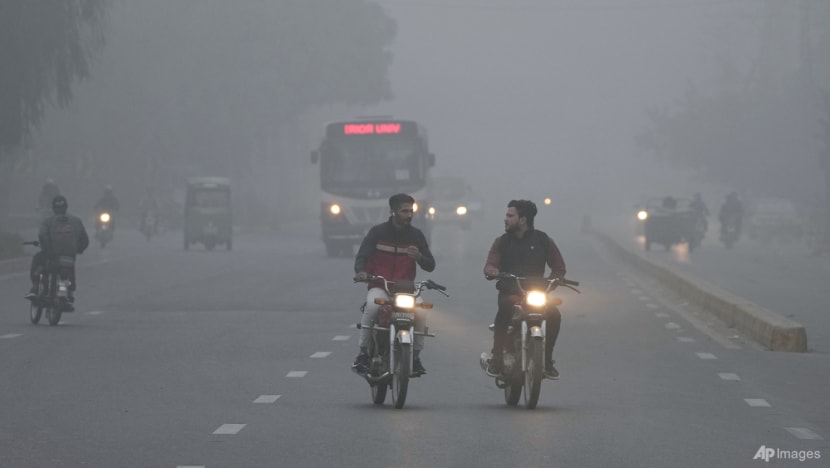Pakistan’s air pollution crisis is affecting its children’s physical and mental health
Some schools in Lahore have installed air purifiers and are limiting outdoor activities to mitigate the impact of poor air quality on students.


This audio is generated by an AI tool.
LAHORE: Pakistan is racing to address an air pollution crisis that is triggering fears of a nationwide health emergency.
In Punjab, Pakistan’s most populous province, more than 11 million children under the age of five are exposed to toxic air daily, according to United Nations estimates.
Swiss air quality tracker IQAir frequently ranks Lahore, Punjab’s capital, among the world's top three most polluted cities, with its air quality index often exceeding 100 – in the unhealthy levels.
In addition, the daily amount of PM2.5 – fine particulate air pollutants hazardous to health – recorded frequently surpasses the World Health Organization’s 24-hour air quality guidelines of 15 micrograms per cubic metre.
The global health body has called air pollution one of the greatest threats to children’s health.
Students in the provincial capital have raised complaints that the polluted air hurts their eyes.
“Many are unaware that poor air quality not only harms the lungs,” said student Kashaf Zahra.
“In Lahore, many (students) are suffering from deteriorating eyesight. When exposed to this polluted air, the harmful particles can enter the eyes.”

The air pollution is not only taking a toll on students’ physical health, but also putting strain on mental health.
At Trinity School Lahore, for instance, principal Taimur Bandey said students have been approaching the school’s wellness counsellor with concerns of anxiety and depression over friends and family affected by the pollution.
Some schools in the city are installing air purifiers to safeguard the health of the city’s students and taking precautions such as limiting outdoor activities.
POLLUTED AIR OVERLOADS HEALTHCARE
The city’s doctors said they are increasingly overloaded, with more patients seeking treatment for respiratory symptoms amid persistent poor air quality.
Muhammad Israr, a doctor at the Pakistan Institute of Medical Sciences who treats 50 patients a day, said exposure to allergens is particularly harmful to children under five and people above 50.
The threat posed by toxic air has prompted community groups like the Pakistan Air Quality Initiative, which aims to increase awareness of air pollution, to act.
Its founder Abid Omar has deployed 150 low-cost air quality sensors nationwide to strengthen Pakistan's air quality monitoring network.
The sensors collect data, identify causes and help guide pollution control strategies.
During last year’s smog season, the group also recommended three initiatives to the government to curb pollution: controlling vehicular emissions, closing non-compliant industries and shutting down brick kilns.
Omar said implementing the three actions could help urban air pollution levels drop by 45 per cent.

LONG-TERM SOLUTIONS NEEDED
Pakistan’s government has launched the National Clean Air Programme to improve air quality, with the World Bank recently approving a US$300 million loan to help the country clean the air in Punjab province.
The programme intends to increase forest cover and raise public awareness of pollution.
Environmentalists also called for a more robust public transportation network to reduce fuel consumption and improve air quality in the country.
They said pollution must be treated as a public health emergency rather than just a chronic inconvenience.














